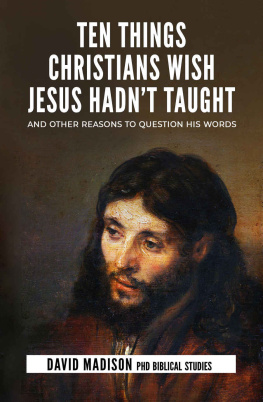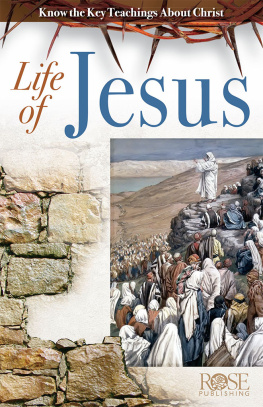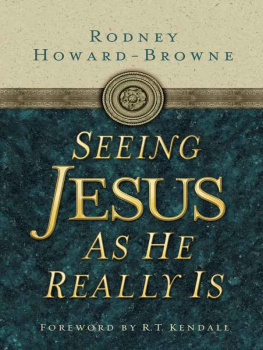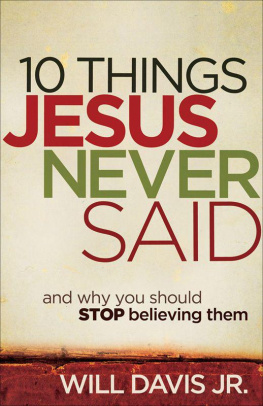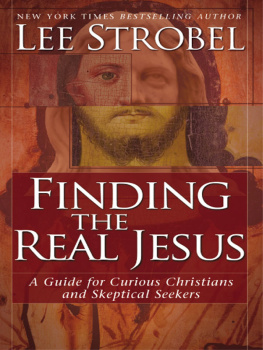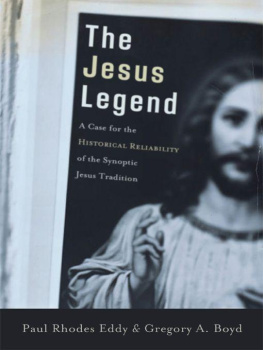All rights reserved. No part of this book may be reproduced in any form or by any electronic or mechanical means including information storage and retrieval systems, without permission in writing from the author. The only exception is by a reviewer, who may quote short excerpts in a review.
Scripture quotations followed by NRSV are from the New Revised Standard Version Bible, copyright 1989 National Council of the Churches of Christ in the United States of America. Used by permission. All rights reserved worldwide. nrsvbibles.org
Foreword
W hat are we to do when we run across something in the Bible that sounds goofy, deranged, or even downright evil? Perhaps what one needs is an informed guide, and for that, an earnest seeker could hardly find a better one than Dr. David Madison.
As a teenager in the prairie-flatlands of northern Indiana, while other kids were out shooting hoops, young David was attending church and voraciously reading his mothers hefty 12-volume Interpreters Bible, a serious collection of scripture commentary and exegesis, written by biblical scholars for ministers. His interest in the Bible carried over to college, where he became active in the Methodist Wesley Foundation for students and gravitated toward the ministry with the goal of teaching Bible as a college-level academic.
After graduating from college, David went to the Boston University School of Theology, the alma mater of Dr. Martin Luther King. There he gained reading proficiency in biblical Hebrew and Greek, and, to keep up with advances in scholarship, he studied French and German as well. He completed his Ph.D. in Biblical studies while serving two parishes as a Methodist minister.
Few Christians are as well-schooled in their faith or as well-armed against threats to faith as David Madison. So perhaps rank-and-file believers can take comfort in knowing that even a pastor and biblical scholar can find himself wrestling with doubts. Some uncertainties came from unexpected quarters. Among them was his interest in astronomy, which made him keenly aware of the recently discovered and near-unimaginable scope of the universe with its billions of galaxies.
Dr. Madison found it difficult to reconcile the fact that our planet, the center stage of Gods Creation according to Christian theology, was actually one of billions. And rather than being the central hub around which everything in the cosmos revolves, ours is no more than just another of the smaller planets of an ordinary star, lost in a remote arm of a spiral galaxyitself pinwheeling in its local neighborhood of a still greater galactic conglomeration, in an incomprehensibly vast universe.
But the challenges to his faith werent all external. Even his high-level doctrinal training for ministry proved to be fraught with problems. The more he advanced in seminary study, the more the cracks in Christian thought showed.
This brief recap is making a long story very short. In a nutshell, these and still other pressures continued to build until, after years of devoted Bible study and service as a trained minister, by the time David had finished his Ph.D. in Biblical studies, he decided it was time to leave and walked away from the faith. He had studied his way out of Christianity.
For Christian readers, at this point, it seems like a fair warning is in order. If you are harboring doubts about your faith, this book might add to them. You will see there really are things you wish Jesus hadnt taught and that there are even major obstacles to actually knowing what Jesus taught. As the saying goes, this book is for mature audiences only.
David Fitzgerald
Introduction
D evout followers of Jesus pay special attention to his words, and many love a special edition of the Bible in which the words of Jesus are printed in red. Bible editors use this technique to reinforce confidence that Jesus actually spoke the wordsand it works. I know what Jesus said in the Bible, because its written in red, said one woman to her new pastor.
When I was a kid growing up in a conservative Methodist Church in rural Indiana, some of these words in red didnt sound quite right to me. For example, to one man who wanted to follow Jesus but said he had to go bury his father first, Jesus replied, Let the dead bury their own dead, but as for you, go and proclaim the kingdom of God. That seemed rude to me, but Jesus was our Lord and Savior, so I couldnt let it bother me too much. But the problem of questionable Jesus sayings didnt go away. In fact, it got worse the more I read the gospels carefully as I got older.
In Part 1: Ten Troublesome Teachings, Ill direct your attention to ten Jesus teachings that are far more troublesome than his one-off comment about burying the dead. Even if you attend church regularly, its possible you might not have noticed these teachingsor youve noticed, but it makes you too uncomfortable to dwell on them.
The obvious question here is: How could I be so presumptuous that I would claim to know that Christians wish Jesus hadnt taught certain things, and if so, what those things might be. Its a fair question. The answer is simple.
When large numbersperhaps the majority of Christiansignore a teaching of Jesus or insist that its meaning is something dramatically different from what his words clearly communicate, it is logical to assume these Christians would be more comfortable if Jesus had never said such a thing.
Im calling out a silent rebellion by followers of Jesusincluding many of his most devout disciplesagainst some of his key teachings. One characteristic of these teachings is that if they were uttered by anyone other than Jesus, these same believers would reject them immediately and openly instead of pretending they must mean something else or are too mysterious to grasp.
As my ideas for this book were coming together, I reread the gospels carefullyfor the umpteenth time in my 78 yearsand this time built a chart listing the problematic Jesus sayings in the gospels. In making this list, I went along with the common Christian assumption that the gospel authors captured the real words of Jesusthat we can pick up the Bible and find out what Jesus really saidan assumption that makes all these words fair game for careful and critical scrutiny.
Just how did I determine which sayings belonged on the chart? I had a few standards in mind. One was moral value. Another was distance from magical thinking and superstition. But another issue guided me as wella bit of wisdom from my childhood. In attorney Joseph N. Welchs famous 1954 encounter with Senator Joseph McCarthynow so long ago and far awayWelch asked him: Have you no sense of decency, sir? At long last, have you no sense of decency? I was looking for decency in Jesus. When I came across sayings that failed the decency test, I added them to the list.
The total count of problematic quotes by Jesus came to 292. But I didnt want my readers to get bogged down in an endless discussion of them all, so I decided to focus on ten teachings of Jesus that Christians themselves appear to agree are problematic.

